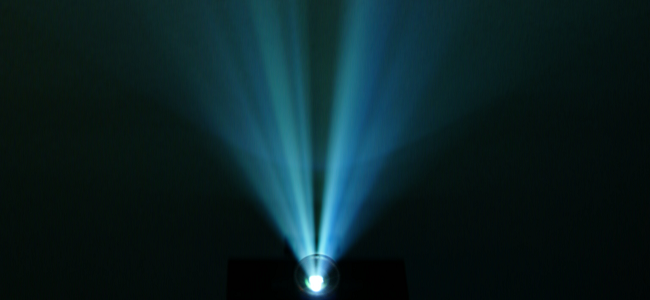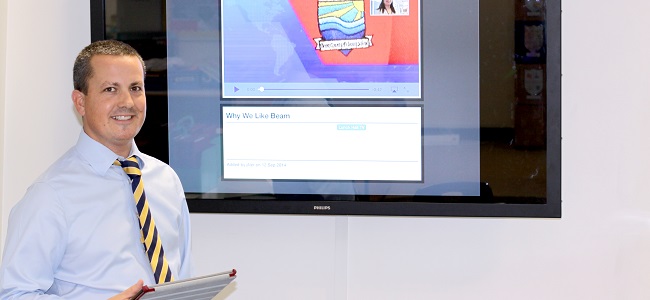In June this year, 1500 7-11 year olds, teachers and parents will get to see their youngsters' work on the British Film Institute (BFI) IMAX’s cinema screen as part of a new initiative to improve literacy using filmmaking. The Lit Film Fest, featuring films written, performed and filmed entirely by Primary school pupils, is soon to hit Britain's biggest cinema screen. Powered by A Tale Unfolds and supported by Innovate My School, the festival will premier at the BFI IMAX Cinema in Waterloo, London, allowing children aged 7-11 see their work showcased on the 20 x 26 metre screen!
I’m probably showing my age with this story. I was 14. It was after a sports lesson. I was tired. It was Geography. The teacher arrived at the classroom in an excited state. We were going to the A.V. room. This was indeed exciting. You must understand that this was before the days of interactive whiteboards, YouTube - using computers, indeed. Classrooms were not equipped to show moving images, so we all had to decamp to a different room set up for this very purpose. It was not even in the same block.
Writing and filmmaking maestros A Tale Unfolds have announced the early release of Frightful Film Trailer, their brand-new, free resource made in collaboration with The Literacy Shed. This week-long literacy project encourages teachers to use film and filmmaking in the classroom as a purposeful way to engage children with writing. Using animations from The Literacy Shed as well as original videos starring The Write Brothers, teachers and pupils are guided step by step in creating their own trailer.
There seems to be a recurring theme to my lessons of late: I can link any learning moment to a Disney and/or Pixar reference. Some may see this as a distraction or a problem, but I’m in constant contact with my inner child and honestly, the students almost always get it. I was particularly proud of my efforts in a single Year 7 Science lesson one morning. We have been learning about food chains and webs and relationships between organisms. Enter the first reference:
Innovate My School agony aunt and TechnoTeaching co-author Nicole Ponsford takes a look at the challenges facing teachers today.

Many people are thinking about Easter eggs and sprucing up their garden furniture at this point of the year. However, for us in the teaching world, things aren’t quite as sunny. It is, after all, the peak of the interview season (for September ‘15 starts), the time when it hits you that the exam timetable is a bit too close for comfort and if you haven't had your inspection yet, you know that you are running on borrowed time (mainly due to all of the last minute LT requests for data).
When thinking about what we would like our students to be able to do, the above definition really appeals to me. I believe that in preparing our learners for the real world, which is competitive and often challenging - we should also be teaching them how to (in the words of the dictionary definition) create ‘meaningful ideas, forms, methods and interpretations.’ We don’t want our students to be passive consumers of digital or analogue culture, I want them to be involved in shaping it.
Creating video projects and resources allows for a lot of creativity, which is why one east London school has chosen to fully adopt a new system into their school: TrilbyTV.

Beam County Primary School in Dagenham have been using a video creation and storage system to innovate their school in big ways. ICT coordinator John Filer (pictured above) and his colleagues have introduced TrilbyTV into the school, in order to enhance the quality of various literacy, numeracy and science projects, as well as to create fun pupil roles within the building, such as lunchtime monitors. As a result of embracing this new system, the school has seen a huge rise in pupil-engagement, which has had an impact on all areas of the curriculum.
During my primary-teaching career of over 40 years, I found that making films with pupils was a perfect way to increase engagement and progress through what becomes covert learning, as they get completely wrapped up in the excitement of having a real purpose for their work; a film premiere in their school or even the local community. For children who live in today’s digital age, it is the perfect way to combine the school’s primary agenda (to show improvement) with that of a child; to have as much fun as possible.

A community-driven platform for showcasing the latest innovations and voices in schools
Pioneer House
North Road
Ellesmere Port
CH65 1AD
United Kingdom